
42 minute read
From prestigious Science awards, to exploring eSafety, to promoting international mindedness, our staff share how their professional development has contributed to the School community this year
capacity for pity, empathy and compassion seems to be diminishing. There has been a marked increase in the levels of invective and vitriol online, particularly towards women, minorities and the LBGTQIA community. And while advances in technology have enabled us to connect in real-time, they have also served to facilitate abuse, with GPS tracking devices and spyware allowing perpetrators to continuously harass their victims, causing added emotional and psychological distress.
Building a culture of responsibility
Advertisement
It is evident that to create a brighter digital future, we need a combination of government support, industry self-regulation and law enforcement. But we also need an evidence-based national prevention education program, with clear policies and guidelines. It will enable us to create safe spaces for our young people to understand privacy and pornography laws, as well as strategies to encourage open debate about the potential consequences of engaging in risky online behaviour. It will also support our young people to develop the skills and tools to be safe, kind and ethical online, without compromising their freedom and agency.

Schools can lead the way
Schools can play a leading role in supporting young people to be good digital citizens. By teaching and modelling responsible behaviour - both offline and online - we can support them to be ‘upstanders’, not bystanders, in the face of bullying, abuse or exploitation. And by integrating our approach to topics such as healthy relationships, healthy communication, emotion regulation, identity, diversity and tolerance, we can empower our children to safely balance the enormous possibilities of the internet.
But the burden of online safety education cannot fall to schools alone. We need to bring parents into the conversation too, making digital citizenship a community effort. If parents are empowered to confidently navigate the online world with their children, they can start conversations at home and set age-appropriate boundaries. Together through our joint efforts, we can support the next generation to thrive in a rapidly changing digital world.
REFLECTION
As an Assistant Year Coordinator, I am passionate about fostering the social and emotional health and wellbeing of our students. This extends to supporting students to be safe, confident explorers of the online world. Attending the eSafety Conference was an opportunity for me to better understand how educators can empower students to use technology wisely, enhancing their real-life connections and creating a positive impact for others.
Following on from this professional development opportunity, I presented key findings and recommendations from the eSafety Conference to staff. It was a chance to highlight the fundamentals of responsible digital citizenship, including safety, privacy and security and recommend some of the resources on the new eSafety Commission website. It has led to productive discussions with colleagues across the School about how to safely embrace the remarkable rewards that digital technology has to offer. I have also devised a new PDHPE Cybersmart Unit of Work for Year 4 students, helping them to learn, explore and stay safe online, both inside and outside the classroom.
GROW AND ENGAGE
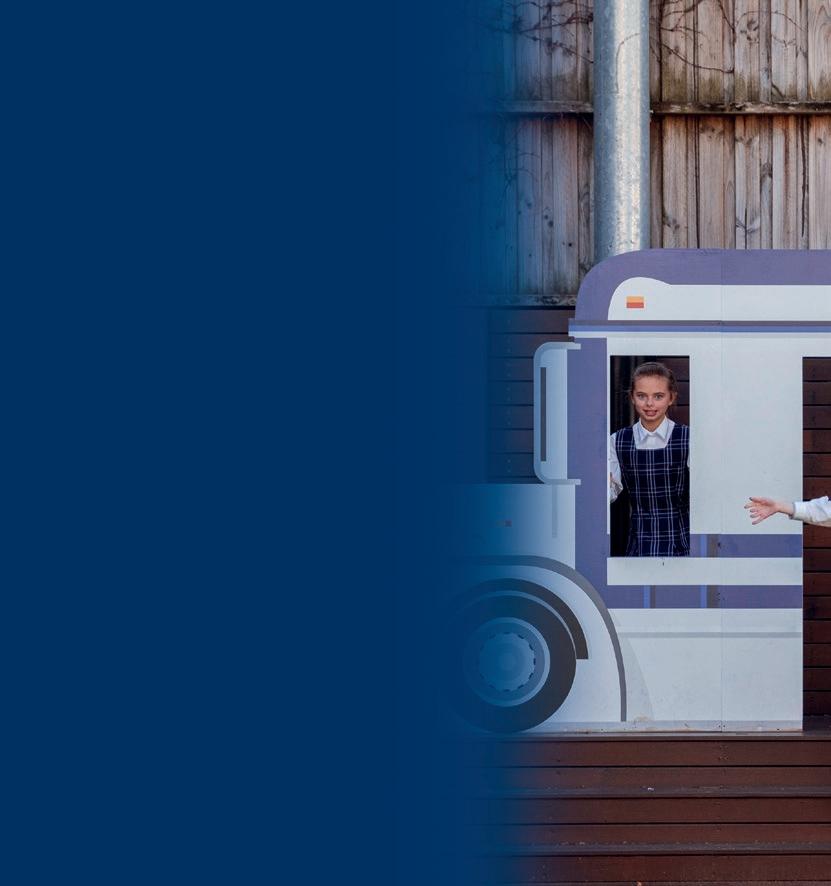
“ACROSS THE SCHOOL, IT IS REWARDING TO SEE OUR STAFF EMBRACE PROFESSIONAL DEVELOPMENT OPPORTUNITIES THAT HAVE A TRANSFORMATIVE EFFECT ON OUR PROFESSIONAL PRACTICE.
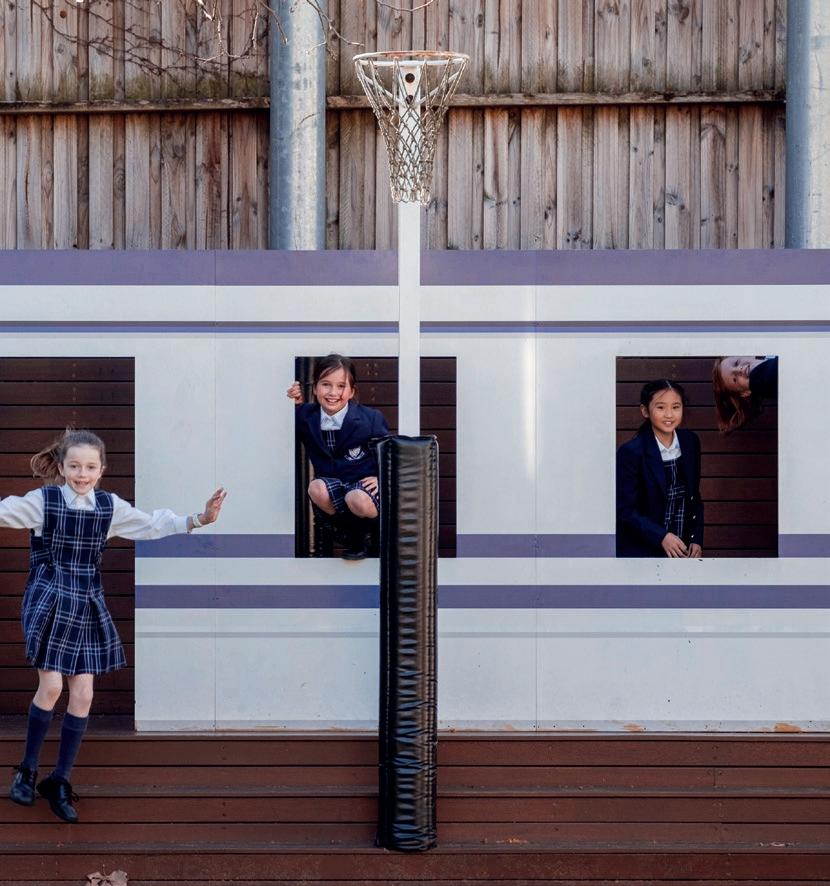
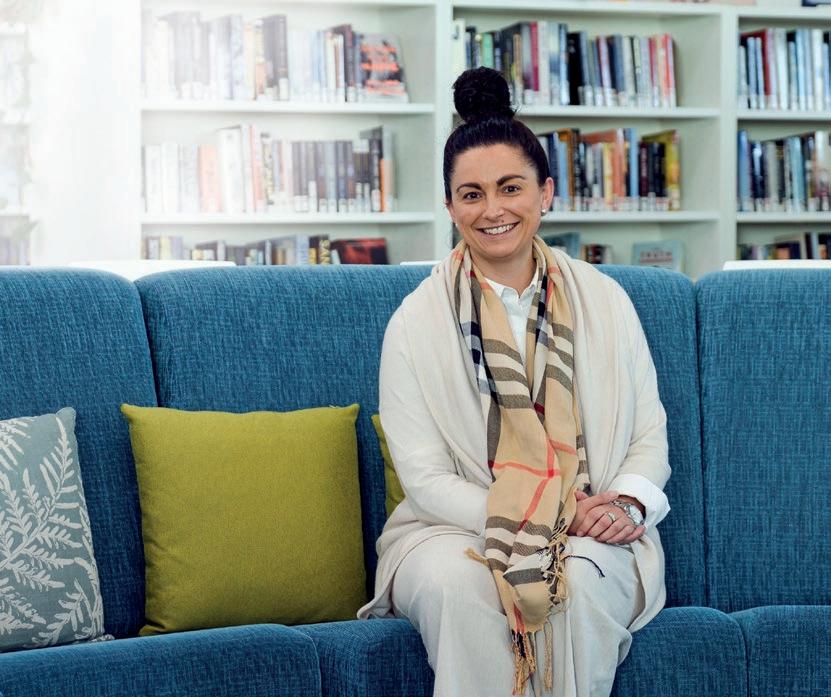
REFLECTION
Studying part-time for a Master of Educational Leadership at UNSW has given me a clear understanding of the latest research, theory and practice in educational leadership. It has also developed my ability to apply disciplinary principles and practices to some of the complex challenges and situations I encounter in my role as the Head of Middle School. My coursework has exposed me to different leadership styles and has given me practical ideas and skills for mentoring staff and implementing and leading change. Through my self-directed research project, I plan to build on my earlier research around the high attrition rates of early-career teachers. My focus will be on staff wellbeing, supporting teachers to find a sustainable balance in their lives, so that ultimately, we can continue to attract and retain the best teachers to the profession.
AN EVERYDAY LEADER
Creating good humans
BY AMY WEBB
HEAD OF MIDDLE SCHOOL
Fulfilling a dual calling to be a great teacher and a great leader has its own challenges. A Master of Educational Leadership has enabled Head of Middle School, Amy Webb to invest in her own learning and development. But it’s also helping her to empower students and staff to cultivate the leadership capacities they need to thrive.
As one of the most successful teams in sporting history, the All Blacks’ warrior mentality is legendary. But back in 2004, the All Blacks had hit a rocky patch. They’d been unexpectedly knocked out of the 2003 Rugby World Cup and had been on a losing streak ever since. Morale was low, discipline was poor and senior players were threatening to leave. Dramatic change was needed if this iconic team was to pull together and regain their place at the pinnacle of world rugby.
In 2004, a new management team was appointed under Graham Henry. Their mantra was ‘Better People Make Better All Blacks’. Together, they set about creating a culture that emphasised character, unity and personal leadership over individual brilliance. Everyone needed to share responsibility for decision-making, problem-solving and the embedding of team protocols. And it all started with humility and personal discipline. After every game, some of the most famous names in world rugby would come together with their team-mates to clean out the changing rooms, proving that they weren’t too big to do the small things. Of course, the rest is history. The All Blacks went on to achieve stratospheric success, winning back-to-back World Cups and achieving an incredible win-rate of over 77 percent.
Learning from the All Blacks
Given my background as a PDHPE Teacher, I’ve always drawn a lot of inspiration from the sporting arena. For me, the All Blacks in particular have been exemplary leadership role models. Most notably, I like their culture of thinking as a collective, so that individuals don’t learn and grow in isolation, but support each other to flourish. As Harry Truman once said, “It is amazing what you can accomplish if you do not care who gets the credit.” Teaching PDHPE has, and always will be, my first love. It’s a privilege to work alongside young people, helping them to develop a sense of purpose and cultivate the learning and leadership skills they need to thrive in an increasingly uncertain and disruptive world. But teachers are often promoted because of the skills they’ve developed and demonstrated in the classroom and in 2017, I was appointed Head of Middle School.
Power of relationships
The scope and weight of my responsibilities are, inevitably, wider than they were before. As well as my teaching commitments, I oversee the pastoral, academic and service opportunities for our students in Years 7 to 9, and I work with their parents too, closely supported by the Middle School staff. It takes effort and humility to lead a team. I recognised early on that to do the role well, I needed to foster open, transparent relationships and honest communication. Schools are complex ecosystems and there are many variables that enable them to flourish. But above all, I believe that positive relationships are central to the wellbeing of both students and teachers, and that a strong sense of connection underpins a successful learning environment.
Working as a team
‘Whanau’ is the Maori word for extended family; and it’s symbolised by a spearhead. To work effectively, all three tips of the spearhead must move in the same direction. Nobody is an expert on everything and in my experience, the best leaders see the best in others, acknowledge their contribution and show them that they value it. They strike the right balance of support and challenge by helping and guiding their team, but also by holding themselves to account when necessary. And they do so with hope, humility and humour.
Studying for a Master of Educational Leadership at UNSW has helped me to consolidate my leadership skills and embrace the bigger picture. Wenona has a clear vision for its students, helping them to develop as leaders who can make a genuine contribution to their communities and to society more broadly. It is a privilege to play my part in giving future generations the best opportunity to thrive by equipping them with the leadership skills to find their way in an increasingly complex world.
ART OF THE MATTER
Channelling creativity into a new career
BY ANGELA FERREIRA
PERSONAL ASSISTANT TO THE DEPUTY PRINCIPAL (STUDENT WELLBEING)
As any successful Visual Arts Department will tell you, students flourish when they have access to a broad range of teachers, all with their own interests, talents and passions. When accomplished artist, Angela Ferreira graduates as a Visual Arts Teacher, she will bring her own creative flair and unique life experience to the classroom.
Artmaking has always been my favourite ‘me time’ activity, but in our always-on digital world, time is precious. Working full time, studying part time and caring for my family means opportunities to escape to my studio are limited. Nevertheless, my head is continually swirling with ideas for my next artwork and whenever I unlock the door to my studio, I’m literally bursting with excitement about what I want - and need - to say.
A blank canvas can be intimidating. Picasso referred to it as ‘the scaffold’, evoking the fear so many artists feel when faced with executing the painting they’ve been percolating so vividly in their mind’s eye. I’m no different. But as soon as I daub that first brush of colour across my canvas, the anxiety evaporates. Quietly cut adrift from all forms of technology, the physical process of artmaking consumes me - the smell of paint, the palette of colours, the feel of different textures and materials to experiment with. And while painting is never an exact science, it always reinvigorates a part of me that other aspects of my life can’t reach.
It’s easy to lose myself in the flow of creating - something that is impossible to achieve in my busy day-to-day life as the Personal Assistant to the Deputy Principal (Student Wellbeing) at Wenona. My role is very process-driven and even though I’m a creative person, scheduling meetings, responding to emails and tackling paperwork all give me the sense of satisfaction of a job well done. But like so many of us, my ‘To-Do List’ can become overwhelming. Art allows me to journey within and explore what Henry David Thoreau so beautifully described as “the private sea, the Atlantic and Pacific Ocean of one’s being”.
Growing up in South Africa, my heart was set on a career as an artist, so I completed a three-year Fine Arts Diploma at Technikon Natal in Durban. Studying against the backdrop of a repressive and racist apartheid regime was life-changing. I’d enjoyed a relatively sheltered childhood and felt ill-equipped to give a thoughtful critique of South Africa’s political, economic and social systems at the time. I decided that without a strong voice, I wasn’t suited to a career in art. In retrospect, I’m grateful for this because it

REFLECTION
It takes four years of full-time study to gain a degree in secondary education, so it’s an ongoing challenge to accept that it will take time to qualify as a Visual Arts teacher. In the meantime, I’ll continue to enjoy working behind the scenes at Wenona, absorbing as much as I can about teaching and learning in this environment. I will also continue to exhibit my work through the Ku-ring-gai Art Society, where I am the Membership Secretary, as well as participating in other art shows across Sydney.
liberated me to follow my own artistic path and tap into something central within. My art is about connecting with landscapes, emotions, memories and people. It’s deeply personal yet at the same time, universal. I feel fortunate that my work has always found an audience and that I continue to give joy and inspiration to others through my art.
Working at a school like Wenona has allowed me to observe, to listen and to learn. What I’ve discovered is that I want to combine my love of art with teaching in order to inspire future generations to unleash their creative potential too. For the past year, I’ve been studying for a Bachelor of Education (Secondary Education - Visual Arts) through Curtin University. There’s an incredible synchronicity between what is unfolding in my studies each semester and what plays out each day at Wenona. I feel fortunate to be surrounded by such talented teachers, all highly skilled specialists in their field. They are not only happy to share their knowledge with me, but also never baulk at my ‘First Year’ questions. And of course, I’m always inspired by the insane creativity, bravery and maturity of the Visual Arts students here. I can’t wait to step into the classroom and work with them.
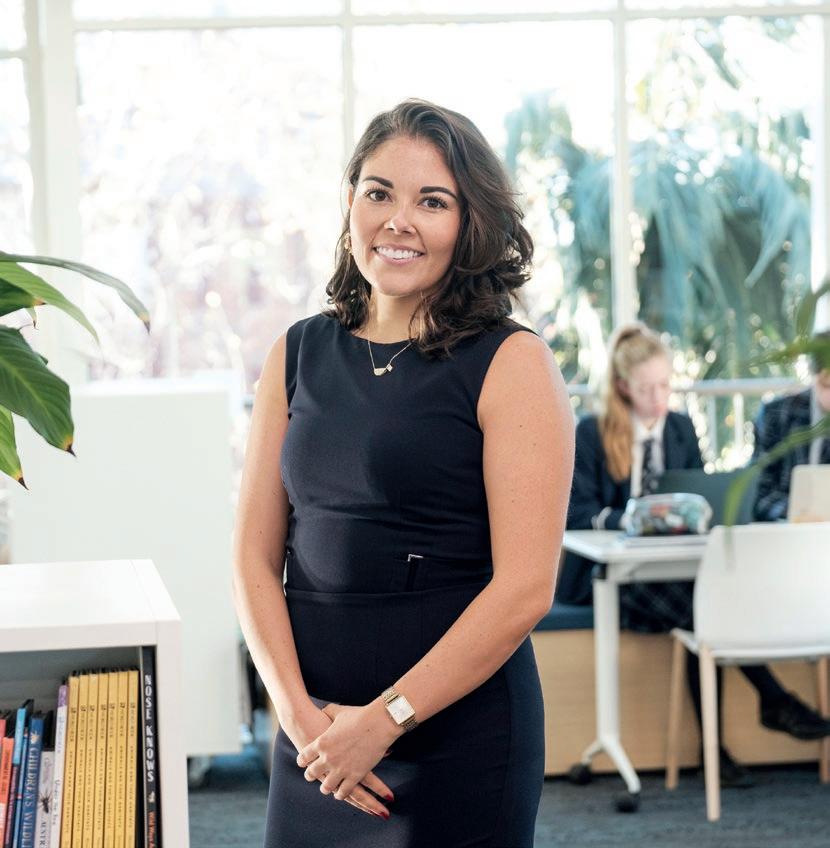
REFLECTION
I will complete my Master of Student Wellbeing at the end of 2020. There is no sugar-coating the difficulties that come with juggling work and study. While it has been hard to balance it all without resorting to polishing off a block of Cadbury’s Crispy Mint Crème each night, it has also been incredibly rewarding. My postgraduate degree has given me an opportunity to focus on the topics I find genuinely interesting and engage with them in depth. It has reshaped my understanding of what it means to be a learner and reaffirmed my passion for ensuring that all students are given the opportunity to flourish. Above all, it has highlighted that Wenona has an excellent Pastoral Care program in place, which supports girls at all stages of their development. I am proud to be developing my own skill set so that I can contribute to student wellbeing in a more creative and meaningful way.
STANDING STRONG
Supporting students to thrive
BY CHARLOTTE KARSTEN
HISTORY TEACHER AND HEAD OF HOOKE HOUSE
As Head of Hooke House, Debating Coordinator and a History teacher at Wenona, Charlotte Karsten is well versed in guiding, advising and assisting students as they make the transition from childhood to adulthood. Studying for a Master of Student Wellbeing has helped her to consolidate her skills and promote the flourishing and excellence of the girls in her care.
At Wenona, pastoral care isn’t something that just happens when things go wrong. We provide a constant network of support to our students as they navigate the inevitable challenges of growing up. As a Pastoral Care teacher specifically and as a Head of House more broadly, I’m often the girls’ first port of call, and my focus is always on empowering them to lead happy, healthy and successful lives. Undertaking a Master of Student Wellbeing at Southern Cross University has given me a better theoretical understanding - as well as evidence-based tools and strategies - to help my students maintain a healthy perspective on school, life, and everything in-between and beyond.
Growing up in a digital age
The principles of wellbeing are universal. We all want to feel wonderful and function at an optimal level, but this generation of young women are growing up in a digital age and they face different pressures to those we may have dealt with in our own childhoods. Our young women are smart, articulate and tech-savvy. And intellectually, they understand how the media works. But they must also contend with a constant barrage of ‘fake news’, which can serve to undermine their confidence and sense of self.
Navigating social media
As an historian, I know better than most the effect that propaganda can have on people, but the internet has amplified this age-old problem. More than ever, our young women need the ability to think critically in order to withstand the latest marketing trends and the pressure to live up to unattainable standards of beauty and lifestyle from online influences. With hundreds of people vying for their attention on social media, it’s easy for our young women to forget the importance of making real connections
Staying strong
During my studies, it has been interesting to reflect on change and continuity in the education sector from a historical perspective, as well as thinking about the external forces that have transformed the nature of our school environments. From a pastoral care point of view, it has been fascinating - and at times, overwhelming - to consider the impact technology has had on the social, emotional and physical wellbeing of our young people. Ultimately, my aim is to better support my students to thrive in this rapidly changing, complex world. And while we cannot protect them from every psychological and social challenge they will ever encounter in their lives, my course has extended my capability to support students and encourage them to stay strong in the face of adversity.
Valuing diversity
As a teacher of wellbeing, I believe that by educating our young people about diversity, it encourages them to be kind and respectful to others and prepares them to take on the world with understanding, empathy, and love. Therefore, a highlight of my course has been a unit on valuing diversity, in which we reflected on how to best support the needs of students with unique personal attributes. When diversity - both within the classroom and beyond - is explored, discussed, and celebrated, it enables students to see that we are all part of large, meaningful groups, but we also have characteristics and experiences that make us individual and unique.
EXCELLENCE IN TEACHING
Growing as learners and leaders of learning
BY RENEE DE ROSSI
GIFTED EDUCATION COORDINATOR
Research shows that quality teaching is fundamental to student success. Gifted Education Coordinator, Renee De Rossi, is passionate about promoting the professionalism of teachers. This includes mentoring her peers to undergo national teacher certification to improve their practice for the benefit of their students.
Teachers, like students, are always learning. We live in an age where new technologies, new curricula and new pedagogical practices are constantly disrupting the educational landscape. As a result, they are reshaping the way we think about learning, creating shifts in our approach to pedagogy, and changing the dynamics of our classrooms. If we are to meet the evolving needs of our students, it is critical that we take time to reflect, evaluate, innovate and collaborate, and in doing so, continuously improve our practice. In 2013, I was accredited as a Highly Accomplished Teacher, one of the higher levels of teacher accreditation, and gaining increasing prominence as more teachers attain national certification.
This rigorous three-year process involved classroom observations and feedback, collating documentary evidence of my pedagogical practice, and sourcing written statements from referees. It challenged me to unpack my teaching methods and evaluate the impact I was having on learning outcomes. It helped me to develop critical insights into the craft of teaching and sharpen my professional skill set. And it gave me a framework for supporting others, enabling me to have targeted and fulfilling professional conversations with colleagues in order to amplify best practice. Since I gained my Highly Accomplished Teacher certification, I’ve taken the opportunity to mentor teachers in other schools, supporting them to work towards accreditation. At Wenona, the learning of young people comes first, and quality teaching thrives. It is an environment where teachers work collaboratively to have the greatest impact in the classroom. And the School encourages us to seek out professional development opportunities that contribute to the culture of continuous improvement that exists here. In May 2019, I travelled to Darwin to attend the National Highly Accomplished and Lead Teacher (HALT) Summit at the Darwin Convention Centre. Chaired by Laureate Professor, John Hattie from the Melbourne Education Research Institute at the University of Melbourne, the event brought together education thought leaders such as Dr Lyn Sharratt, Dan Haesler and Renez Lammon.
With such an immense pool of professional knowledge and intellectual capital to draw from, it was an invigorating environment to listen and learn from others. Collegial conversations with peers provided opportunities to discuss best practice and explore ways to better share expertise with colleagues. The program also included interactive workshops that challenged our thinking on topics such as how to empower more women to succeed in school leadership positions.
For me, the opportunity to visit a local school was a highlight. I visited Leanyar Primary School in the outskirts of Darwin, where I gained a greater appreciation and understanding of the unique cultural and educational contexts that exist in the Northern Territory. The school serves a diverse multi-cultural community, with 47% of students coming from Languages Other Than English (LOTE) backgrounds. Assistant Principal and Lead Teacher, Ebone Coats shared some of the initiatives that were contributing to the school’s success. This included programs for teacher mentoring, student self-regulation, coteaching and sustainability. Stepping into classrooms adorned with the joyful creations of students, I was struck by the happy buzz of learning and the warmth of staff-student interactions. It reinforced the positive impact that these programs are having on wellbeing, inclusion and language development.

REFLECTION
The HALT Summit inspired and challenged me to think more critically about how we can collectively grow the expertise of the teaching profession to improve outcomes for all students. Nearly 600 educators across Australia are now formally recognised for their leadership and expertise, but it would be great to support more people to attain national teacher certification. Moving forward, I’d like to help develop a forum, whereby new educators and aspiring leaders can learn from more experienced colleagues, particularly during the accreditation process.
HEALTHY COMPETITION
Building connections, skills and networks
BY REBECCA DONG
REGISTRAR
In an era of increased parental choice, competition between schools has intensified. We all need competition. It motivates us to achieve more, inspires innovation and improves quality. But it is collaboration that is helping to amplify best practice, as Registrar, Rebecca Dong discovered when she visited three of Melbourne’s leading schools.
As the Registrar at Wenona, I oversee the admission process for all entry points (K to 12), as well as enquiries from prospective parents. Whether it is prospectus requests, the organisation of tours, interviews, orientation days or boarding, or simply a question about day-to-day life at Wenona, I am generally the first port of call.
Enrolments have a huge impact on the successful management and operations of a school. Based on Wenona’s leadership, reputation, HSC results and vision for the future, we are a school of choice for many in the local community and beyond. Our waitlists are healthy, with a growing number of enquiries from around the world. But we can’t afford to be complacent. To remain a preferred education
provider and stay ahead of the curve, we must always look to new ways of communicating, engaging and building trusted relationships with prospective families.
My counterparts in other schools will often ask about the length of our waitlists, the number of scholarship applicants we have or how close we are to meeting next year’s targets. Conversations with other registrars can provide useful insights into the latest trends or drivers shaping parental choice. But while there’s plenty of willingness to lend support, there’s also an underlying pressure to differentiate Wenona from our competitors. Learning to manage the tension between competition and collaboration is a skill worth acquiring because it can bring greater value and success to our school and others.
For this reason, I decided to reach out to three of the leading schools in Melbourne: Haileybury College, Melbourne Girls Grammar and Mentone Girls Grammar. All have compatible strengths with Wenona, so I was keen to connect, engage and learn from their Enrolments Departments. I deliberately timed my visit to coincide with the Victorian/ Tasmanian Educate Plus Conference hosted by Haileybury College in order to maximise opportunities to network with leading professionals in my field.
As Melbourne’s first vertical school, Haileybury’s city campus has successfully and creatively met the challenge of meeting high demand in a densely populated area. A 12-storey building caters for 800 students from Early Learning to Year 12. It has two floors dedicated to art facilities, a professional standard drama studio, a sports hall and universitylevel science labs. There are outdoor terrace spaces, including lots of climbing spaces for younger students, an indoor running track and a rooftop space with a gymnasium. The school is located opposite Flagstaff Gardens, Melbourne’s oldest park, so
students also make use of this as an outdoor space. Parents drop their children off in an underground basement and the school has ample bike storage. I found it highly interesting to talk with Haileybury’s Enrolments team about how prospective parents have responded to this new educational setting, and how their approach to marketing has evolved as a result.
Choosing a school for your child is a huge decision. A common theme in my conversations with Haileybury College, Melbourne Girls Grammar and Mentone Girls Grammar, was that regardless of geography, we all face similar challenges in meeting - and exceeding - the expectations of prospective parents. Parents don’t see a school advertisement and enrol their child straight away. Instead, they will have multiple touchpoints across various channels before they make their decision. Every family deserves to feel special, but the challenge is how to engage and communicate with a prospective family in a way that resonates with them.
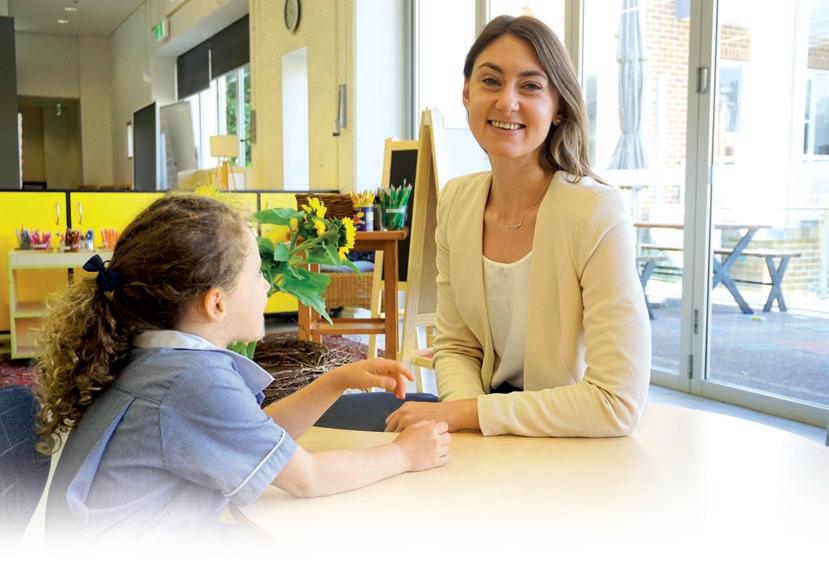
As I discussed with my counterparts in Melbourne, nurturing each prospective family takes time. It requires phone calls, meetings and regular followups, which can quickly eat into a registrar’s day. When you factor in repetitive administration tasks, it’s easy to understand why enrolments departments can become overwhelmed. It was useful therefore, to brainstorm ways to streamline tasks and to learn more about the different databases schools are using to automate day-to-day tasks, freeing up time to build personal relationships. This includes developing email communications, newsletters and blog posts targeted to parents who are still considering your school.
REFLECTION
It was refreshing to connect and collaborate with registrars from like-minded schools, and to talk to them openly and honestly about the challenges and opportunities we face in our roles. To effectively market our schools, it is imperative that we understand the processes that parents walk through in order to make their enrolment decision. This enables us to speak to parents on their terms and according to their interests. It highlighted to me how important it is to have a clear and defined purpose in all our communications, and how technology can help us to manage the entire lifecycle of a prospective family.
Wenona has a strong culture of aspiration, collaboration and excellence, with the sharing of best practice from practitioners across the education sector feeding into the continual professional development of staff. Having an opportunity to extend my professional network beyond Sydney was extremely worthwhile. It has given me more people to reach out to for advice and support as I continue to navigate the complexity of enrolments.
BUILDING CAPABILITY
Enhancing personal and professional development
BY ANDREA BRISLAND
HUMAN RESOURCES MANAGER
Andrea Brisland’s role as Human Resources (HR) Manager enables her to have a unique perspective of Wenona. Not only does she have a clear understanding of our culture, priorities and challenges, but she is also working hard to ensure the School is accredited as an ‘Employer of Choice’ for a diversity of talented staff.
In a sector built around people, it is inevitable that increasingly, schools are looking to hire experienced in-house HR professionals to navigate the complex nature of employer and employee relations. The HR function can help schools to attract, develop and retain the best people. But it can also help them to remain abreast of the latest trends, best practices and ethics in Human Resource Management (HRM), supporting them to successfully deal with the day-today challenges that arise in any organisation when it comes to managing people.
In many ways, HRM forms the backbone of an organisation as it provides the hidden structure that keeps everything moving forward. Understandably, the behind-the-scenes nature of my role as HR Manager at Wenona can sometimes make it difficult for others to understand what it is that I do. Put simply, I am responsible for supporting the life cycle of every staff member, from their hiring to their eventual departure from the School, and everything in between.
The success of any school - and ultimately, the social, emotional and academic outcomes of its students - depends on the careful management of its resources, which of course, includes its staff. One of the main reasons I was attracted to working at Wenona is because it is such a relational school. People are valued and supported to do their jobs here, and both teachers and professional services staff work hard to contribute to student success. My focus is to maximise these contributions by helping to recruit the right people and supporting them to flourish. Given the School’s culture of excellence, Wenona attracts high quality candidates who are passionate about working here. The hiring process can be long, from drafting up job advertisements, reviewing applications, selecting the right candidates for first-round interviews, performing various pre-employment tests and checks, and making recommendations to the Principal. This part of my role requires flexibility, attention to detail, excellent communication and listening skills, negotiation skills and professional discretion.
As part of the School’s strategy to attract and retain the best people, I am working closely with the Executive Leadership Team to become accredited as an ‘Employer of Choice’. To receive this accreditation, organisations are required to demonstrate their achievements across five key areas: Organisational Culture and Leadership; Employee Education, Training and Development; Employee Health, Safety and Satisfaction; Performance Management; and Recognition and Remuneration.
Another priority for Wenona is to embrace workplace diversity by continuing to foster an inclusive environment where everyone thrives. Drawing from a workforce with a diversity of views, genders, abilities, backgrounds, cultures and education levels, helps to drive innovative thinking, which of course, is highly beneficial to our students.
I am fortunate to work closely with both teachers and professional services staff at every stage of their career. I have observed that career paths in the educational sector are becoming more fluid and less traditional, with a growing emphasis on collaboration and multidisciplinary capability in teaching and learning. Wenona actively supports staff to develop in their current roles or experience new ones. This enriches their exposure to different fields and disciplines, and expands their skills, knowledge and networks, which again benefits our students.
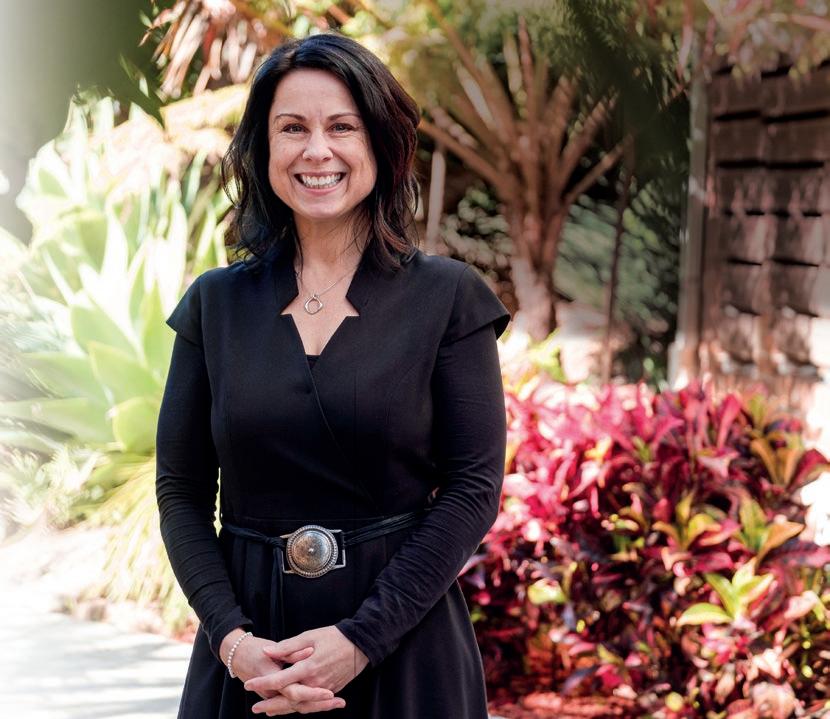
REFLECTION
While there are specialist HR roles, most positions in a school setting require HR professionals to be involved in multiple functions. We must excel at recruitment, selling the school brand to talented prospective employees. And we must be adept at all-round good people practice, which includes onboarding, engagement, career planning and performance management. I enjoy the broad scope of my role at Wenona. It has given me the opportunity to influence innumerable aspects of the organisation, which I hope will help to drive teaching and learning outcomes for students. I have also enjoyed working closely with the Executive Leadership Team, focusing on the bigger picture and participating in long-range planning to champion better work and working lives for staff. I love the fact that HR is not a stand-alone function, but part of Wenona’s core infrastructure. As a field, HR is an evolving science and it’s exciting to know that there are always new strategies, approaches, technologies, and skills that we can embrace to further develop Wenona’s capability and brand as a leading independent school.
NEW STAFF

Ms Justine Lind
HEAD OF JUNIOR SCHOOL
I would probably describe myself as a ‘teacher tragic’. I always, always wanted to be a teacher, and having just celebrated my 30th year in a career I love, I feel very fortunate to spend my days in a role that never feels like work.
Before joining Wenona as Head of Junior School, I was the inaugural Head of Junior School of Oxley College in the Southern Highlands for five years. Prior to that, I taught in a variety of Independent Schools, as a classroom teacher, a gifted education specialist and a leader of curriculum. I was the Deputy, Teaching and Learning at St Andrew’s School in Adelaide, where I discovered the exciting PYP and MYP programmes. And I also led the establishment of The Honours Program at The Scots College in Sydney, while completing a Masters of Educational Leadership.
It’s important to me to feel a sense of cultural alignment with the schools I work in. Wenona is a happy place, alive with wonderment and a sense of awe about the world. It is optimistic about future possibilities and has a deep sense of nurturing its people. The School’s mission of intentionally empowering young women to take their place in a global society of the future, and to be a force for good, resonates strongly with me. It means that we must respond to the innate capacity of young girls to explore the big ideas of our time and give them age-appropriate opportunities for self-determination.
Over the course of my career, teaching, and education more broadly, has become more courageous and innovative. This is important as education is all about the future. It is legacy building stuff! We touch the future through the children we teach today, so we need to acknowledge our responsibility to equip all children with the skills, knowledge and self-belief they will need to stay safe and strong, with a heart for servant leadership, in order to shape the world for the good of all.
Working with such an energetic, talented and diverse community of staff and students is an extraordinary privilege. Wenona is a daily reminder of the potential of education to inspire and empower individuals and whole communities.

Ms Danielle Dwyer
BUSINESS MANAGER
As the mother of two daughters, I am passionate about being part of a community that empowers young women to find their spark, and face opportunities and challenges with compassion and resilience. Wenona appealed to me as I was already familiar with the Renaissance Women’s Leadership Network prior to joining the School and have a strong alignment to Wenona’s values of courage, grace, strength and wisdom.
In my role as Business Manager at Wenona, I lead a team of professional services staff, overseeing the financial management and business administration of the School. I work closely with the Principal, School Executive, and the Finance and Governance subcommittees of the Board. I liaise with the School’s Property Manager and the Director of ICT to oversee budgets, risk management, contracts, compliance and insurance. My role also supports the Wenona Uniform Shop, the Independent Theatre and the Print Room, as well as liaising with external contractors who manage the Wenona Café and the catering and maintenance of the Wenona Boarding House.
Prior to joining Wenona in 2019, I worked at Our Lady of Mercy College, Parramatta for 10 years. I first joined OLMC as their Finance Manager, then progressed to Director of Business Services, and spent five years leading governance and business operations, including finance, property and IT. I have also worked as a Chartered Accountant in public practice for 10 years, specialising in tax and business services.
I hold a Bachelor of Commerce (Accounting) and was awarded The Institute Prize from the Australasian Institute of Banking and Finance, as part of my undergraduate studies. I am an active member of the Association of School Business Administrators (ASBA), a member of the NSW State Committee and the Professional Development Committee. My interest in governance led me to complete studies at the Australian Institute of Company Directors recently, and my next professional development goal is to start an MBA or a post-graduate diploma in property management.
It has been wonderful joining the Wenona community. People have been endlessly generous in sharing their knowledge and expertise, and I’ve relished the opportunity to explore processes improvements, with emphasis on the user experience through new technologies and the extended connectivity of our systems.
In my spare time, I love the simple things, spending time with family and friends, bushwalking and swimming. After a busy week at work, there’s something incredibly soothing about following that black line!
Ms Annette Swinfield
HEAD OF HISTORY
I have always loved studying History. In fact, as a young child I could not wait to open the pages of yet another History-focused book that my father had sought out for me. I would also eagerly await school library day when I would choose yet another History text to read. My curiosity for and love of History flourished throughout my high school and university years and of course, through travel and visiting archaeological sites.
I have 27 years of teaching experience. I hold a Bachelor of Education and Masters of Education. Previously, I was Head of History Curriculum and Lecturer of Education at the Australian Catholic University, and I have worked as Head of Gifted and Talented and Head of History at numerous Independent schools, including most recently, at Saint Ignatius’ College, Riverview. I am an Ancient History HSC marker and I’ve acted in school executive positions, presented at Educational conferences and published my academic work. My interests include curriculum innovation and design, mentoring and leadership development.
I was drawn to Wenona due to my regular attendance at the Renaissance Women Leaders’ Network led by
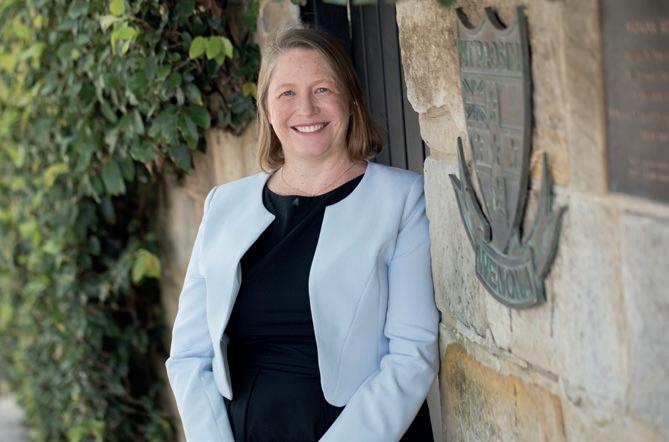
Dr Scott. I have found these events to be inspirational and empowering as a female educator and middle leader, and I wanted to be a part of a community that nourished the development of Renaissance women through a holistic education.
While 2020 has been a year to embrace the unexpected, adapt, be flexible, encourage change, nurture resilience and seize each day as it emerges, I’ve thoroughly enjoyed returning to girls’ education. History students are highly motivated, curious and love to be challenged. It is so satisfying to see them engage in critical thinking and debate. The students are passionate learners and enjoy immersing themselves in historical investigations about personalities, events and societies. Their energy and thirst for knowledge is palpable, and it is wonderful to contribute to their education. As such, they are my daily inspiration.

Dr Kasey Wood Assistant Head of Science
Dr Wood holds a Doctor of Philosophy in Chemistry from UNSW. She has worked in both industry and academic settings, as a research and development scientist for an Australian pharmaceutical company and as a post-doctoral research associate at UNSW. Her work has been widely published in peer reviewed journals and she has presented at the STANSW chemistry and annual conferences. Prior to joining Wenona, Dr Wood was the Stage 5 Science Coordinator at Pymble Ladies College.
Ms Sacha Truskett Laboratory Technician
Ms Truskett has more than 10 years’ experience in scientific research. She holds a Bachelor of Science (Honours) in Pharmacology, as well as postgraduate qualifications in Epidemiology, Biostatistics, and Nutrition. She has worked in therapeutic drug design and research in neuroscience, cancer and bone disease, and has experience in a wide range of laboratory techniques and equipment. She has presented her work at national scientific conferences and instructed new researchers.

Ms Sarah Simpson Science Teacher
Ms Simpson is a Science and Biology Teacher, with a keen interest in evolutionary biology and genetics. She has taught in Australia and New Zealand, in both public and private schools. Prior to joining Wenona, Ms Simpson taught at Kambala in Rose Bay. She holds a Bachelor of Science in Biological Sciences from the University of Auckland, as well as a Graduate Diploma in Teaching (Secondary).
Miss Laura Monk Junior School Teacher
Miss Laura Monk is an innovative educator with experience in both the classroom and public policy. After gaining her Bachelor of Primary Education (Honours Class I) at the University of Sydney, Miss Monk spent a year working as a Graduate Policy Officer for the Federal Department of Education and Training. Most recently, she has taught Year 6 at Chatswood Public School, gaining experience in educating gifted and talented students.

Ms Aoife Quinn Science Teacher
With a Masters Degree in Physics from Queen’s University, Belfast, Ms Quinn was awarded a scholarship from the Institute of Physics to study a Post Graduate Diploma of Education. Prior to joining Wenona, Ms Quinn spent considerable time honing her teaching skills in a variety of schools in the UK. She is passionate about helping to instil
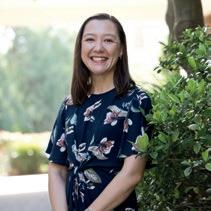

a love of Science in young women.
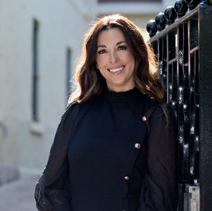
Ms Lydia Parker English and Drama Teacher
Ms Parker is a passionate educator with a Bachelor of Arts/Education from UNSW. Prior to joining Wenona, she taught at Mater Maria Catholic College, where she taught Extension 2 English and was actively involved in the public speaking program, plays, musicals, TheatreSports and extracurricular Drama classes. She was also the Assistant Year 9 Coordinator. Ms Parker is a licensed volunteer wildlife rescuer for WIRES.
Ms Christine Messinesi Visual Arts Assistant
Prior to joining Wenona, Ms Messinesi worked for Formist, collaborating with the Australia Council to deliver the visual identity, art catalogue and exhibition signage for the Australian Pavilion at the Venice Biennale. Before that, she worked for Sydney Theatre company, creating ad campaigns and running photography workshops for school students. She also taught graphic design, letterpress printing and experimental typography at UNSW Art and Design.
Ms Angela Band Personal Assistant to the Deputy Principal (School Operations)
Ms Band holds a Bachelor of Arts (Honours) in Theatre Studies from the University of Otago, and a Masters of Arts and Cultural Management from the University of Melbourne. For the past six years, she worked in the not-forprofit sector, most recently working as the Office Manager for the National Aboriginal Sporting Chance Academy (NASCA). She is passionate about the arts, indigenous affairs, education and empowering women.
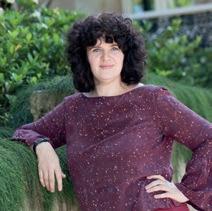

Miss Georgia Perrie Junior School Teacher
Miss Perrie holds a Bachelor of Education from Charles Sturt University. She has held classroom and leadership positions around the world, including Canada, the United Kingdom and Singapore. Most recently, Miss Perrie taught for three years at a leading international school in Singapore, where she was also Head of Curriculum. Her global experience has given her a rich understanding of how children thrive in a global learning community.
Ms Andrea Brisland HR Manager
Ms Brisland holds a Masters of Arts in Human Resources Management. Prior to joining Wenona, Ms Brisland has had extensive HR experience, working in the not-for-profit, healthcare and telecommunications/ICT sectors in both Australia and the United Kingdom. She has also worked in HR at a British university. Her motivation is to add value by helping people and institutions become more effective.

Mrs Christa Rowe Teacher’s Aide
Mrs Rowe holds a Certificate IV in Education Support. Previously, she worked in funds management and holds a Bachelor of Commerce Degree as well as a Post Graduate Diploma in Applied Finance and Investments. Mrs Rowe is a volunteer at Teresa House, which provides free and safe overnight shelter for people at-risk of homelessness and disadvantage, and

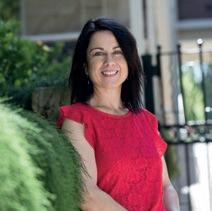
volunteers at her local church.

Ms Jade Goodfellow Administration Assistant (Enrolments)
Excelling in customer service, Ms Goodfellow has had extensive experience in driving and managing client relationships in the financial and technical services industries. She has also worked as a Client Relations and Logistics Manager for a national commercial furniture company. She brings her organisation, technical and interpersonal skills to her role at Wenona, where she supports the Enrolments Team.
Ms Maryanne Lang Administration Assistant (Foundation)
With extensive experience in the media and ICT industries, Ms Lang also owned and managed the North Head Café at Manly Hospital for 13 years. Prior to joining Wenona, Ms Lang worked in finance for an event management company. She holds a Bachelor of Arts (Communications), a Certificate 4 in Bookkeeping and a Certificate 3 in Food Safety Management. She is also a gifted seamstress.
Mr Kevin Xu ICT Solutions Engineer
Mr Xu graduated from Trinity Grammar School in 2015 with a Distinction in the IB. He holds a Bachelor’s Degree in Computer Science from UNSW, where he also received the Computer Elite Award. While at university, he became the Secretary for the PC Enthusiasts Society. He is passionate about technology and outside of work, he loves exploring the latest tech trends, building computers and playing video games.
Ms Janine Edwards Administration and Teaching Assistant (Woodstock)
An experienced event planner, Ms Edwards worked for Walt Disney in Florida, and more recently, in the banking industry in Australia. She has qualifications in event planning from TAFE and is also a Justice of the Peace. She enjoys making things, and has brought her love of art, craft and creativity to her role at Woodstock.
Ms Anna Gregori Accountant
A fully qualified Certified Practising Accountant (CPA), Ms Gregori has more than 20 years’ experience in the finance industry, including accounting and auditing. She holds a Bachelor of Science Degree in Accountancy and a Masters of Business Administration. For the past three years, Ms Gregori has lectured in accounting for the University of Sydney Business School’s Masters program.
Mr Hassan Gholipour ICT Infrastructure Technical Lead
With more than 18 years’ experience in a variety of ICT roles in both Iran and Australia, Mr Gholipour is an experienced ICT professional. He holds a Bachelor of Information Systems, and is currently completing his Masters at Newcastle University. In Iran, Mr Gholipour worked in the network security field industry. Prior to joining Wenona, he worked at Regents Park Christian School for five years as an IT

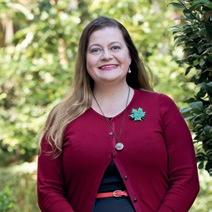
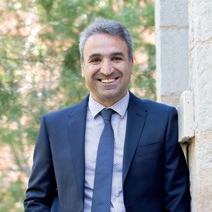

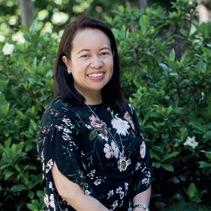
System Administrator.

Mr Vinod Gopal Accounts Officer
Mr Gopal joins Wenona with eight years of experience in the banking and finance sector, both in Australia and overseas. Before joining Wenona, he worked as an Accounts Officer for FlexiGroup. In his spare time, Mr Gopal enjoys playing cricket and badminton, and was awarded medals in both sports during his time at University.
Ms Umadevi Suppiah Photocopy Clerk
Ms Suppiah has 15 years’ experience in administration, including payroll, production and logistics. Prior to joining Wenona, she worked as a Program Coordinator for a health and safety organisation, where she helped to coordinate their health and safety training programs. She holds a Diploma in eCommerce and is keen to improve her knowledge of graphic design.


Ms Lisa White Boarding Assistant
Ms White has extensive experience of working with children and adolescents in the not-for-profit sector, including organising camps for children with high medical needs. She has also volunteered for the Raise Foundation, where she worked as a mentor to teenage girls. Previously, Ms White was an Event Manager, helping to support elite athletes and organise large-scale sporting events.

Mr Nicholas Chukwu Assistant Gardener
Mr Chukwu is originally from Cameroon, where he worked in a family business farming cocoa. Since arriving in Australia, Mr Chukwu has been busy refining his English skills, while working as a barista in a café and settling into the Australian way of life. He has recently enrolled in a Certificate 3 in Horticulture. He enjoys playing basketball and soccer and contributing to his church community.
WENONA SCHOOL LTD
ABN 83 000 250 304 CRICOS 02275A
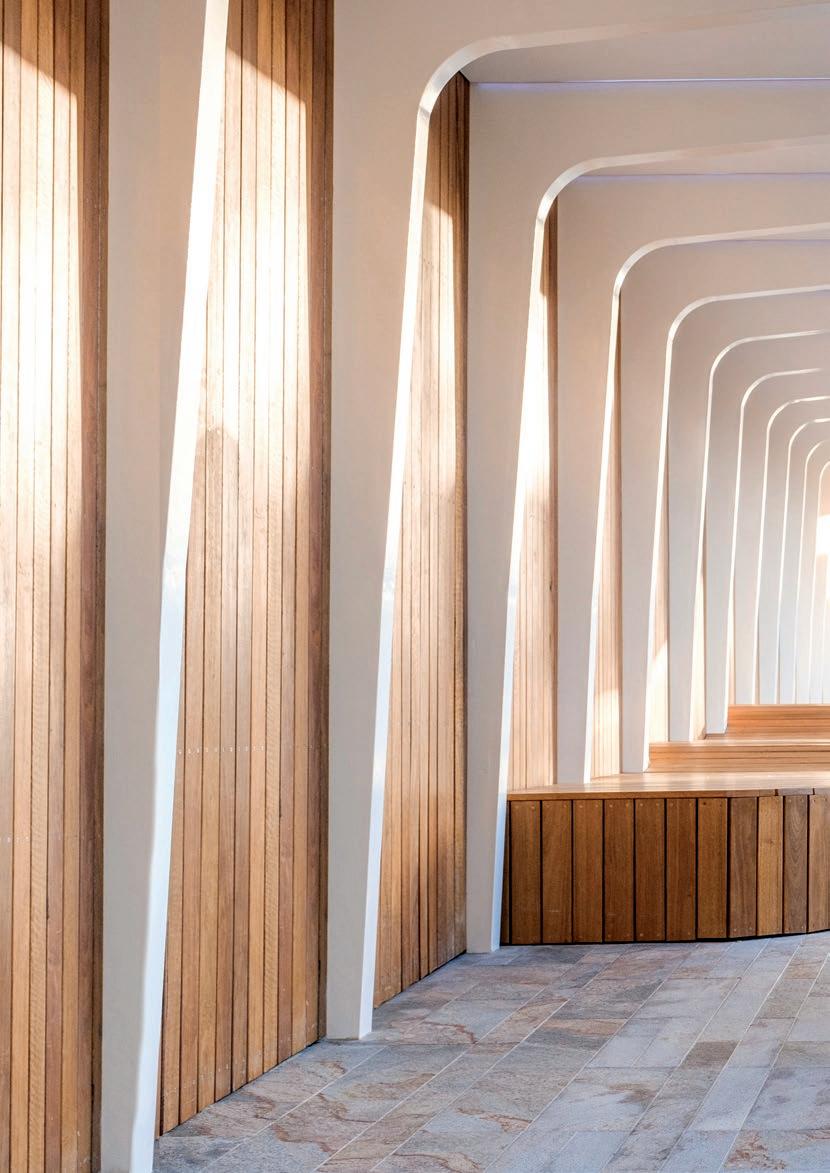
176 Walker Street North Sydney NSW 2060
T (02) 9409 4400 E reception@wenona.nsw.edu.au






